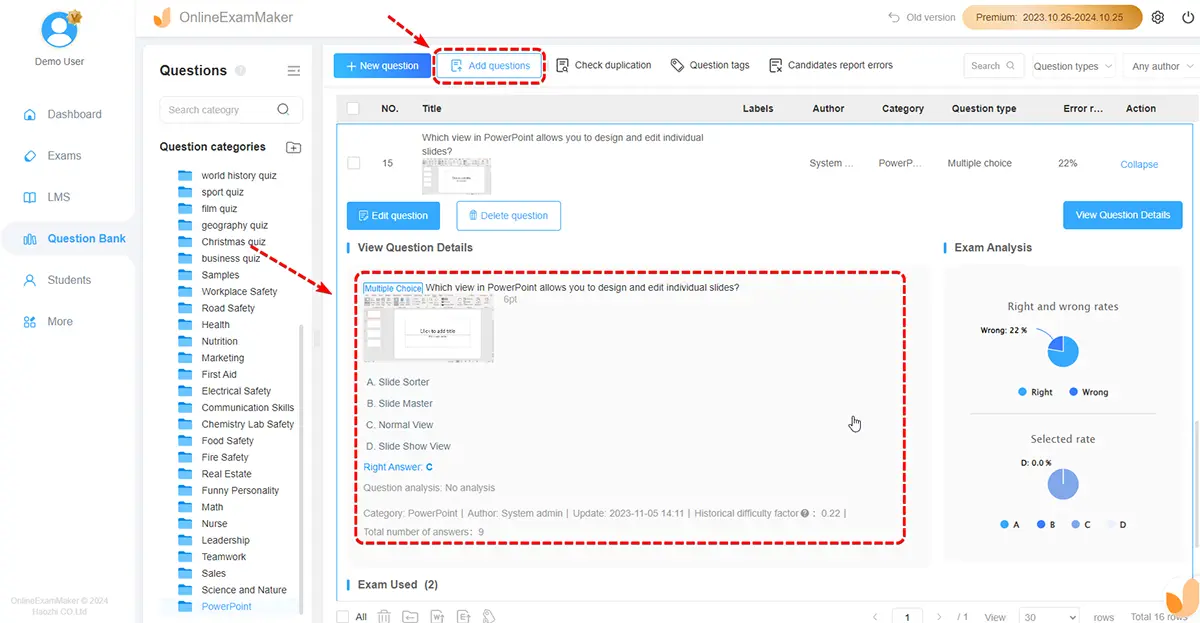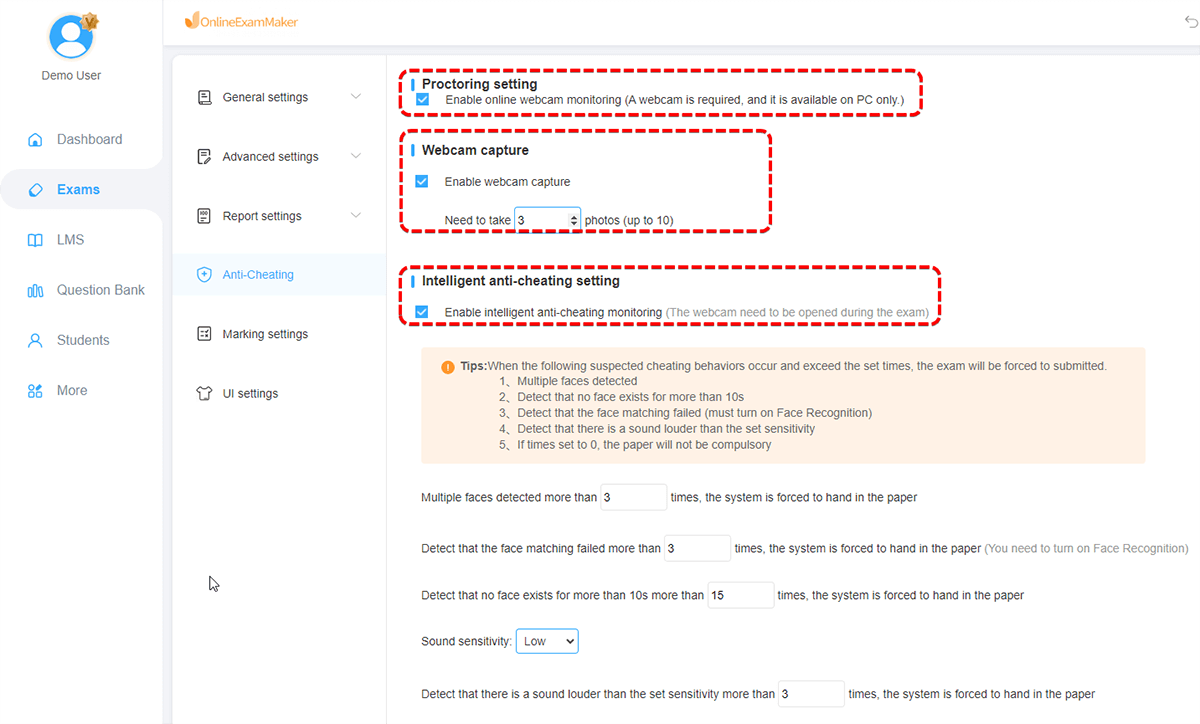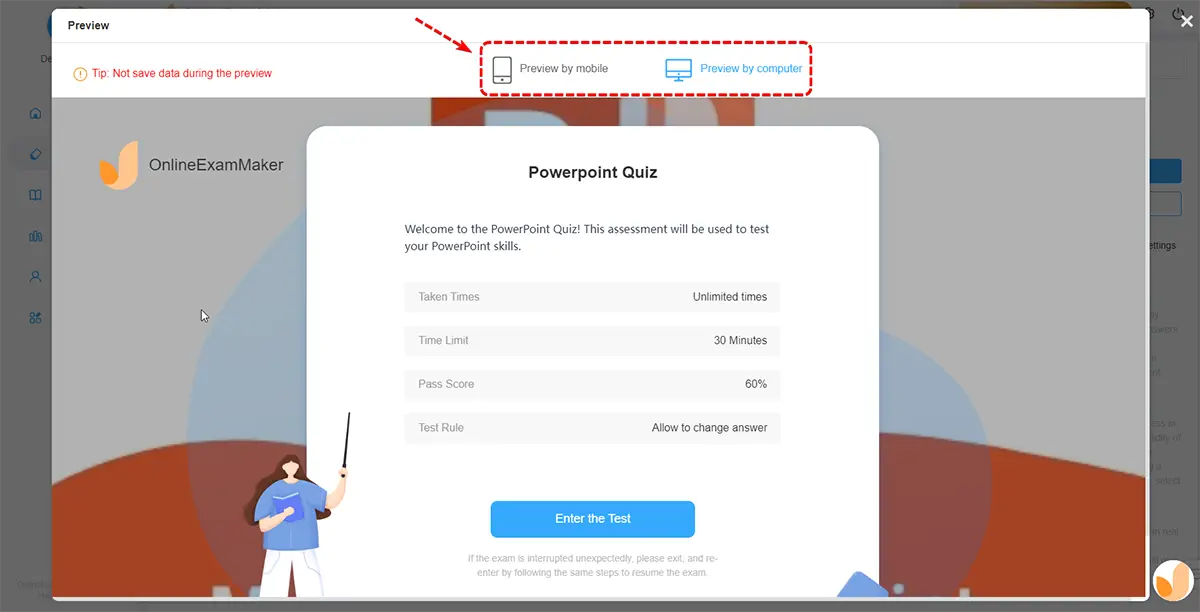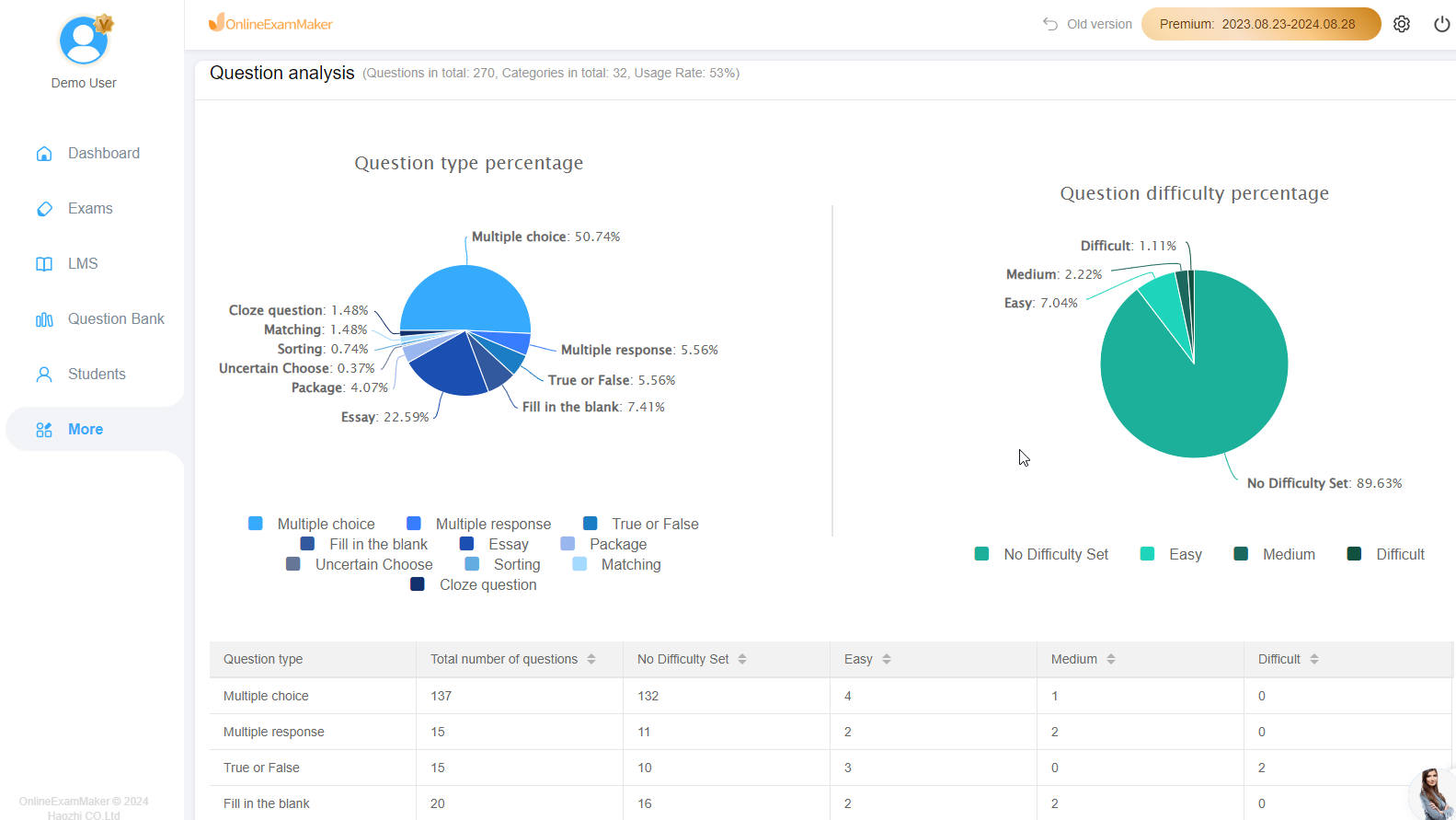Welcome to the new age of academic dishonesty – where artificial intelligence has become the ultimate study buddy turned accomplice.
Did you know? Recent studies suggest that over 60% of students have used AI tools for academic work, with many not fully understanding what constitutes cheating.
The rise of AI tools has fundamentally shifted how students approach online assessments. What once required elaborate schemes involving hidden notes or whispered answers now happens with the click of a button. For educators, HR managers, and training professionals, this represents both a challenge and an opportunity to evolve our approach to academic integrity.
- The New Face of AI Cheating: Understanding the Threat
- Technical Solutions: Building Your Digital Fortress
- OnlineExamMaker: Best AI Anti Cheating Assessment Platform for Teachers
- Smart Assessment Design: Making AI Assistance Irrelevant
- Policy and Education: The Human Element
- How to Make A Proctored Exam to Prevent Cheating in Online Testing?
The New Face of AI Cheating: Understanding the Threat
Gone are the days when cheating meant scribbling answers on your palm or sneaking glances at your neighbor’s paper. Today’s students have access to sophisticated AI cheating tools that can generate essays, solve complex problems, and even provide real-time answers during live assessments.

Common AI Cheating Tactics Students Use
Let’s be brutally honest about what we’re up against. Students have become remarkably creative in leveraging AI for academic shortcuts:
- Real-time question feeding: Copy-pasting exam questions directly into ChatGPT or similar platforms
- Screen-sharing schemes: Using secondary devices to access AI tools while appearing focused on the exam
- Pre-loaded response preparation: Training AI models on course materials for instant answers
- Collaborative AI assistance: Working with friends to feed questions to AI tools simultaneously
The sophistication of these methods means that traditional proctoring solutions often fall short. While webcam monitoring might catch someone looking away from their screen, it won’t detect the subtle use of AI assistance happening in another browser tab.

Technical Solutions: Building Your Digital Fortress
Fighting fire with fire sometimes works, and in this case, we need technology to combat technology. Here are the most effective technical strategies for preventing AI cheating in your online proctored exams:
Lockdown Browsers: Your First Line of Defense
Think of lockdown browsers as digital prison guards. They restrict student access to other applications, websites, and system functions during exams. Popular solutions include:
- Respondus LockDown Browser
- Safe Exam Browser (SEB)
- ProctorU’s browser restrictions
Pro tip: Combine lockdown browsers with network monitoring to detect attempts to access external AI services.

Advanced Monitoring and Surveillance
Modern AI cheating detection tools go beyond simple webcam monitoring:
- Eye-tracking technology: Monitors where students are looking during exams
- Keystroke analysis: Detects unusual typing patterns that might indicate copy-pasting
- Audio analysis: Identifies conversations or device notifications
- Screen recording: Captures all on-screen activity for post-exam review
AI-Powered Detection Systems
Sometimes you need to fight AI with AI. Modern detection systems can:
- Analyze response patterns for AI-generated content
- Compare writing styles against known student work
- Detect unusually sophisticated answers that don’t match student ability
- Flag responses with AI-typical phrasing and structure
OnlineExamMaker: Best AI Anti Cheating Assessment Platform for Teachers
OnlineExamMaker is an online remote proctoring software designed to ensure academic integrity during online exams. Using a combination of AI and live human proctors, OnlineExamMaker monitors test-takers through video, audio, and screen activity during an exam. Its AI detects suspicious behaviors such as leaving the webcam, attempts to access other browsers or applications, and even blocks AI chatbots.
Top features:
● LockDown Browser to restrict browser activity during quizzes to prevent students searching answers on search engines or other software.
● OnlineExamMaker API offers private access for developers to extract your exam data back into your system automatically.
● Randomize questions or change the order of questions to ensure exam takers don’t get the same set of questions each time.
● Handles large-scale testing (thousands of exams/semester) without internet dependency, backed by cloud infrastructure.
Create Your Next Quiz/Exam with OnlineExamMaker
Smart Assessment Design: Making AI Assistance Irrelevant
Here’s where things get interesting. Instead of just trying to catch cheaters, why not design assessments where AI assistance becomes practically useless? It’s like creating a lock that doesn’t just keep people out – it makes them not want to break in at all.
Dynamic and Randomized Question Banks

Create question pools so vast and varied that students can’t predict what they’ll encounter. This approach includes:
- Randomized question selection: Each student gets a unique combination
- Variable parameters: Same concept, different numbers or scenarios
- Time-sensitive releases: Questions unlock progressively during the exam
- Adaptive questioning: Difficulty adjusts based on previous answers
Focus on Application Over Memorization
The secret sauce? Design questions that require personal experience, critical thinking, and real-world application. AI might be able to define photosynthesis, but can it analyze how last week’s lab experiment relates to your specific career goals?
| Traditional Question Type | AI-Resistant Alternative | Why It Works |
|---|---|---|
| Define marketing segmentation | Analyze how you would segment customers for your local coffee shop | Requires personal context and local knowledge |
| List project management phases | Describe a project you managed and how you adapted when plans changed | Demands personal experience and reflection |
| Explain supply and demand | Predict how recent local events might affect housing prices in your area | Requires current, location-specific analysis |
Policy and Education: The Human Element
Technology is fantastic, but it’s only part of the solution. The real magic happens when you combine technical safeguards with clear policies and genuine education about academic integrity.
Crafting Effective Academic Integrity Policies
Remember: Students can’t follow rules they don’t understand. Your AI policy should be as clear as assembly instructions for furniture – nobody wants confusion when the stakes are high.
Your academic integrity policy should explicitly address:
- Definition of AI cheating: What counts as inappropriate AI use?
- Permitted AI assistance: When and how can students use AI tools legitimately?
- Detection methods: How you’ll identify violations
- Consequences: Clear, progressive penalties for violations
- Appeal process: Fair procedures for disputed cases
Teaching Responsible AI Use
Instead of treating AI as the enemy, why not teach students how to use it responsibly? This approach includes:
- Workshops on ethical AI use in academic work
- Examples of appropriate vs. inappropriate AI assistance
- Skill development in AI literacy and critical evaluation
- Discussion of long-term consequences of academic dishonesty

How to Make A Proctored Exam to Prevent Cheating in Online Testing?
Creating a proctored exam involves several key steps to ensure academic integrity and effective monitoring. Below is a step-by-step guide on creating a proctored exam in OnlineExamMaker:
Create Your Next Quiz/Exam with OnlineExamMaker
Step 1: Get started with OnlineExamMaker proctoring system
Step 2: Prepare the exam content

Create your exam questions using OnlineExamMaker AI Question Generator. Decide on the exam format, such as multiple-choice, short answer, or essay questions.
Step 3: Enable proctoring

Create an online assessment, then enable proctoring in exam settings. Then students are required to install a full screen browser and open webcam to access the proctored exam.
Step 4: Conduct the exam

Monitor the exam live or through recorded footage, depending on the proctoring solution. Address any flags or suspicious behaviors according to your institution’s policy.
Step 5: Review and grade

After the exam, review proctoring reports if needed, then grade the exam based on your assessment criteria.
Implementation Strategy: Putting It All Together
Creating an effective AI cheating prevention strategy isn’t about implementing every possible solution – it’s about choosing the right combination for your specific context. Think of it like designing a security system: you need multiple layers that work together seamlessly.
The Three-Pillar Approach
Pillar 1: Technical Prevention
Pillar 2: Smart Assessment Design
Pillar 3: Policy and Education
Start with your current capabilities and gradually build up your defenses. Remember, even the most sophisticated system won’t work if your students don’t understand why academic integrity matters.
As AI continues to evolve, so must our approaches to maintaining academic integrity. The goal isn’t to eliminate AI from education entirely – that’s both impossible and counterproductive. Instead, we need to help students understand when AI assistance is appropriate and when it undermines their own learning and growth.
The most successful institutions will be those that embrace this challenge as an opportunity to improve their assessment methods, strengthen their policies, and deepen their relationships with students. After all, the best defense against cheating has always been a learning environment where students are genuinely engaged and motivated to succeed through their own efforts.
By combining robust technical solutions with thoughtful assessment design and clear educational policies, educators can maintain the integrity of online proctored exams while preparing students for a future where AI is a powerful tool – when used responsibly and ethically.
The battle against AI cheating isn’t just about catching rule-breakers – it’s about building better educational experiences that make cheating unnecessary and undesirable. That’s a future worth working toward.